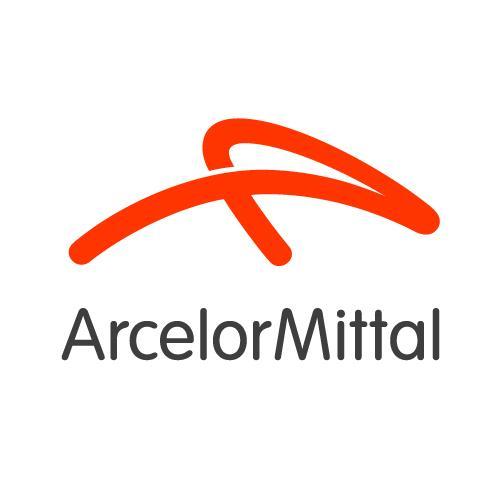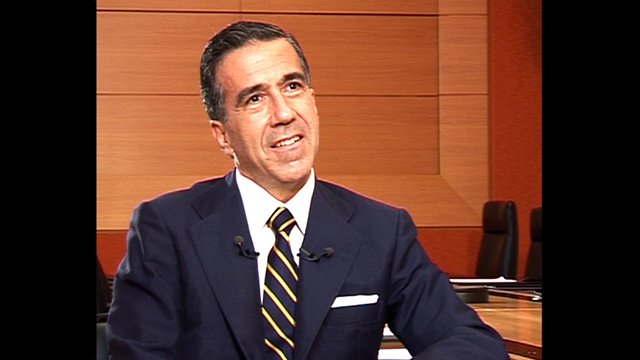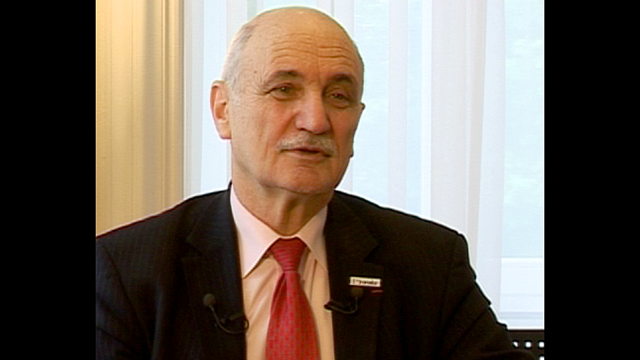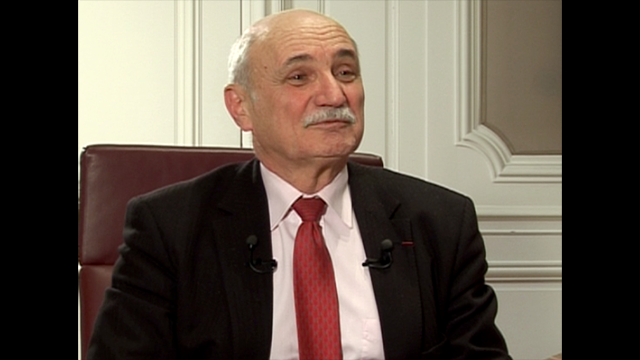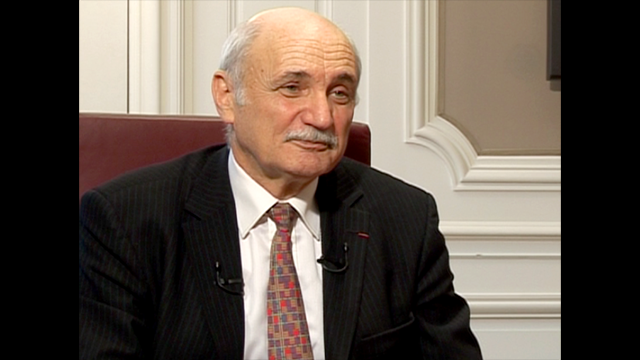EuroBusiness Media (EBM) : Arcelor, one of the world's largest steel companies, just reported earnings for 2004. Guy Dollé, welcome. You are the CEO of Arcelor. What are your comments on your company's performance in 2004 ?
Guy Dollé (GD) : It's an excellent year. It's our best year since the inception of Arcelor. Of course, these results are partially due to the good economic situation in the world, and to the boom in the steel industry, which is mainly linked to the Chinese demand. But it's also due to our ability to reduce costs, including synergies, and our perimeter effect : since last quarter we fully consolidated our new CST assets in Brazil, and since May 1st our Acindar assets in Argentina.
EBM : What are your comments on your dividend which you intend to increase significantly? Is the increase sustainable ?
GD : The board will propose during the AGM to increase the dividend from forty cents to sixty-five cents - representing a 62,5% increase - which shows how confident we are that Arcelor will continue to deliver good results in the future, even at the trough of the cycle.
EBM : What is the outlook for Arcelor in 2005 ?
GD : 2005 will be a very good year, better than the previous one as far as the results are concerned, if only because of a perimeter effect. CST in Brazil and Acindar in Argentina will have been fully consolidated for the whole year; and we will take advantage of price increase we have achieved for annual flat carbon steel contracts.
EBM : What is the outlook for price evolutions in 2005 ?
GD : I have already said that spot prices for flat carbon steel are close to the top; it's difficult to imagine further price increases, unless we fully transfer to customers the effect of raw material price increases. We have achieved more or less what we had announced for the first quarter. For the second quarter, we have in mind to even prices out from one country and from one product to another, taking into account the outcome of the ongoing iron ore price negotiations.
EBM : How will your margins hold up beyond the first quarter ? Or, to put in another way, how successfully can you offset the effect of raw materials price increases ? For example CVRD has announced 90% increases for iron ore.
GD: It's clear we cannot imagine paying a 90% price increase for iron ore. We didn't start negotiations. We just started to talk, because the gap is too large between us and them. During the first quarter, we have already more or less transferred the effect of coal price increases to our customers. We will have to transfer them, the negative consequence of iron ore price increases, and I'm confident that we will achieve that.
EBM : Investors would like to know more about your strategy in Brazil, including planned investments, costs compared to Europe and synergies.
GD : On average we imagine that Brazil could represent 20% to 30% of our capex. But for next year, due to the third phase of the development of CST, it will closer to 60% for Europe, and 40% to 45% for Brazil. We are lucky : we are very pleased to have Acesita, Belgo Mineira and CST, three of the worldwide cost leaders in the steel industry. For example, the cash cost of a slab coming out of the CST plant today is nearly 50 euros cheaper than the same slab coming from a coastal plant in Europe, and 80 euros cheaper than from a continental plant in Europe. That's why, little by little, we will have to use slabs coming from Brazil in order to replace the slabs we will no longer produce in our continental plants. We confirmed we would shut down the first blast furnace in Liège around mid-year.
EBM : Investors would also like to know more about the simplification of your Brazilian local holding structure.
GD : We announced we intend to create the Arcelor do Brazil holding company, which is to be listed on the Bovespa. We do believe we'll be able to announce our final decision next June, when we will have bought the shares of CST that still belong to JFE. After that, we will come back to explain to the market how we intend to proceed in the coming quarters to achieve that goal.
EBM : In the fourth quarter, China became a global net exporter of steel for the first time ever. Do you see this as a conjunctural or structural evolution in the playing field ? What are your comments on this major evolution in your industry ?
GD : The situation of steel consumption, and the balance between import and export in China, is very different from one product to another. In 2004 China was still a net importer of stainless steel, and I do believe that this will last until 2006, after which time it will become a net exporter. Regarding flat carbon steel, China still was a very large importer in 2004, and I do believe that until 2008-2009 China will remain a net importer. Of course, much more for specialties than for commodities. That is an issue for some former Soviet Union producers. Regarding long carbon steel, China already is a net exporter, and will stay so.
EBM : What is your acquisition strategy in Turkey, in particular regarding Erdemir ?
GD : We have already announced that we are very interested in Erdemir. We are waiting for the tender, which is supposed to be released at the end of March. After that, we will have to wait a couple of months before knowing the decision. But, for Turkey as for other acquisitions, we want to be very realistic and not pay too much, meaning we need to be accretive for our shareholders.
EBM : 2004 was a year of transformation for Arcelor. How much more transformation are we going to see Arcelor undergo in 2005 ?
GD : On the local level, we have launched many programs in order to improve our cost efficiency and also our level of service. This will show little by little in the coming years. On a global level -- which is more or less our perimeter - our strong balance sheet and very low level of debt, allow us to make acquisitions. These would take place mainly in a mature market, i.e. the BRIC market (Brazil, Russia, India, China), but our goal is to be accretive to the shareholder. Today many of these companies are highly priced, and we will not destroy shareholder value by paying such high prices. Will be very careful, we have many projects, and we will see to them in the next coming quarters.
EBM : Guy Dollé, CEO of Arcelor, thank you very much.
GD : Thank you.

